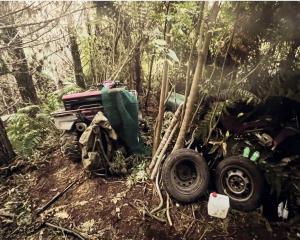
It is in stage two of a multi-year project to consider the use of digital cash, which would circulate alongside physical notes and coins.
The public consultation on the design of a digital cash system for New Zealand closed last week, with more than 18,000 responses submitted.
Reserve Bank head of money and cash Ian Woolford told RNZ's Saturday Morning, especially after the CrowdStrike glitch, it wanted digital cash to be as similar to physical cash as possible.
"What that means is you will be able to use it when the power is down, when the internet is down," he said.
While the Reserve Bank confirmed it would not phase out cash, Woolford said it was getting harder and harder to access, which is why a digital alternative was needed.
"We want to preserve the cash system. We want it to be available for as long as people want it, but it is also important for us to be future-focused and to be thinking about putting in place digital cash so people can continue to access central bank money."
However, University of Auckland economics lecturer Dr Chanelle Duley said all four countries that had launched a central bank digital currency - The Bahamas, Nigeria, Zimbabwe and Jamaica - were struggling with adoption.
Woolford said the Reserve Bank was still in the very early design stages, and will begin consulting with focus groups soon, with a digital currency to be available by the end of the decade.
He said the Reserve Bank was taking a different approach from other central banks in being explicit that the third party provider need not be a bank.
"The New Zealand banking system is the most profitable banking system in the world."
"We think there's a bit of a lack of innovation in the New Zealand payment system, and we think digital cash can act as a real spur to drive competition in."
He said everyone would benefit from having a digital currency available, as it would spur innovation and competition.
"What we want to do is to give people the the ability to to transact offline when the internet is down, when the power is down, to have the choice and trust and confidence in the New Zealand dollar.
"People have a choice whether they use digital cash or not, but we want it to be available for people if they want to use it."













